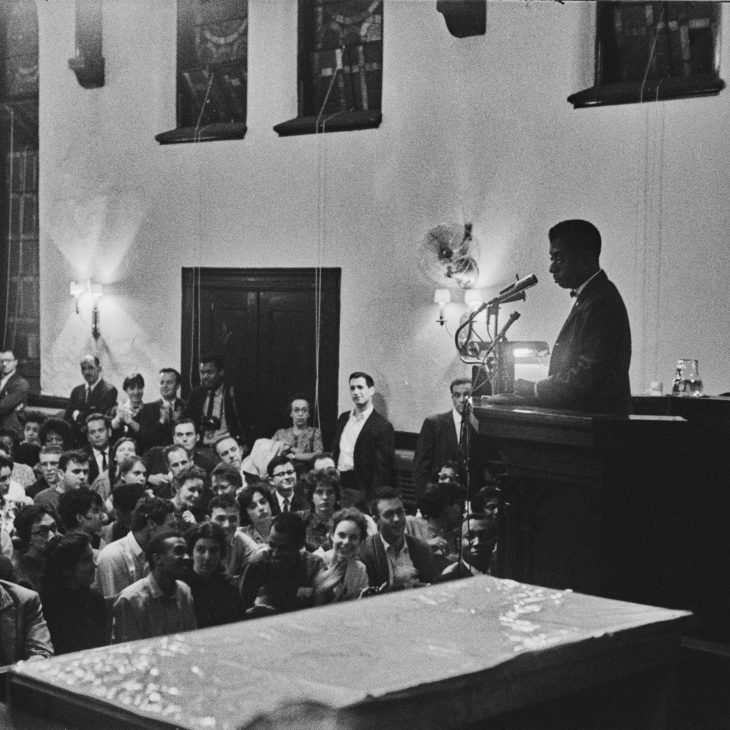
“The story of the Negro in America is the story of America.” – James Baldwin
Those words of James Baldwin serves quite well to anchor Black History Month. What did Baldwin mean by them?
In his inimitable way with words – and his unrivaled poise and style – Baldwin seems to consistently come back to this: the idea that the Black experience is a mirror to the truest dynamics coursing through American culture, the good, the bad, and the ugly. And that in it, we come to encounter the American peril and promise. In Raoul Peck’s masterful 2016 documentary “I am Not Your Negro,” based on Baldwin’s unfinished manuscript Remember this House, this perspective on Black History comes through clearly.
Baldwin was a trenchant commentator on popular culture. In this piece, we are especially treated to his eye on film and music. The white washed channeling of purity in the creation of figures like Doris Day and Gary Cooper, “two of the most grotesque appeals to innocence the world has ever seen,” are productions of a culture that refuses to wrestle with its own racist demons. His ire is not trained on white people, but on the cultural production of whiteness and its counterpoint. We also see footage of Marlon Brando, Joseph Mankiewicz, and even Charlton Heston, joining Sydney Poitier and Harry Belafonte, who all attended the 1963 March on Washington for Jobs and Freedom.
Ever returning to his conviction that redemption is a holistic cultural act, he emphasizes it as a national need in which Americans are intertwined. We cannot evade or ignore the legacy of chattel slavery and the denial of basic humanity without diminishing the souls of us all. Emphasizing the character the whole culture, Baldwin recounts an experience he had with Lorraine Hansberry as she pushed Attorney General Bobby Kennedy. She is prodding him to tell the president, his brother, to personally escort a vulnerable young Black girl as she integrates a southern public school. When Bobby Kennedy responds that this would be a “meaningless moral gesture,” Hansberry makes it plain: “I am very worried about the state of the civilization which produced that photograph of the white cop standing on that negro woman’s neck in Birmingham.”
The state of the civilization. A good thing for us all to interrogate.
Baldwin implores us to remember that “History is not the past. It is the present. We carry our history with us. We are our history.” Words that are true for us all, regardless of race or ethnicity. We Americans, regardless of volition, are constituted by our shared history. I can think of no better perspective to begin Black History Month.
Share
Related Articles
American Civic Life
American Civic Life
Is This a Time for Bridgebuilding? 5 Leaders in Conversation
American Civic Life
‘Justice and Joy’: A Celebration of Black Interfaith with the White House



